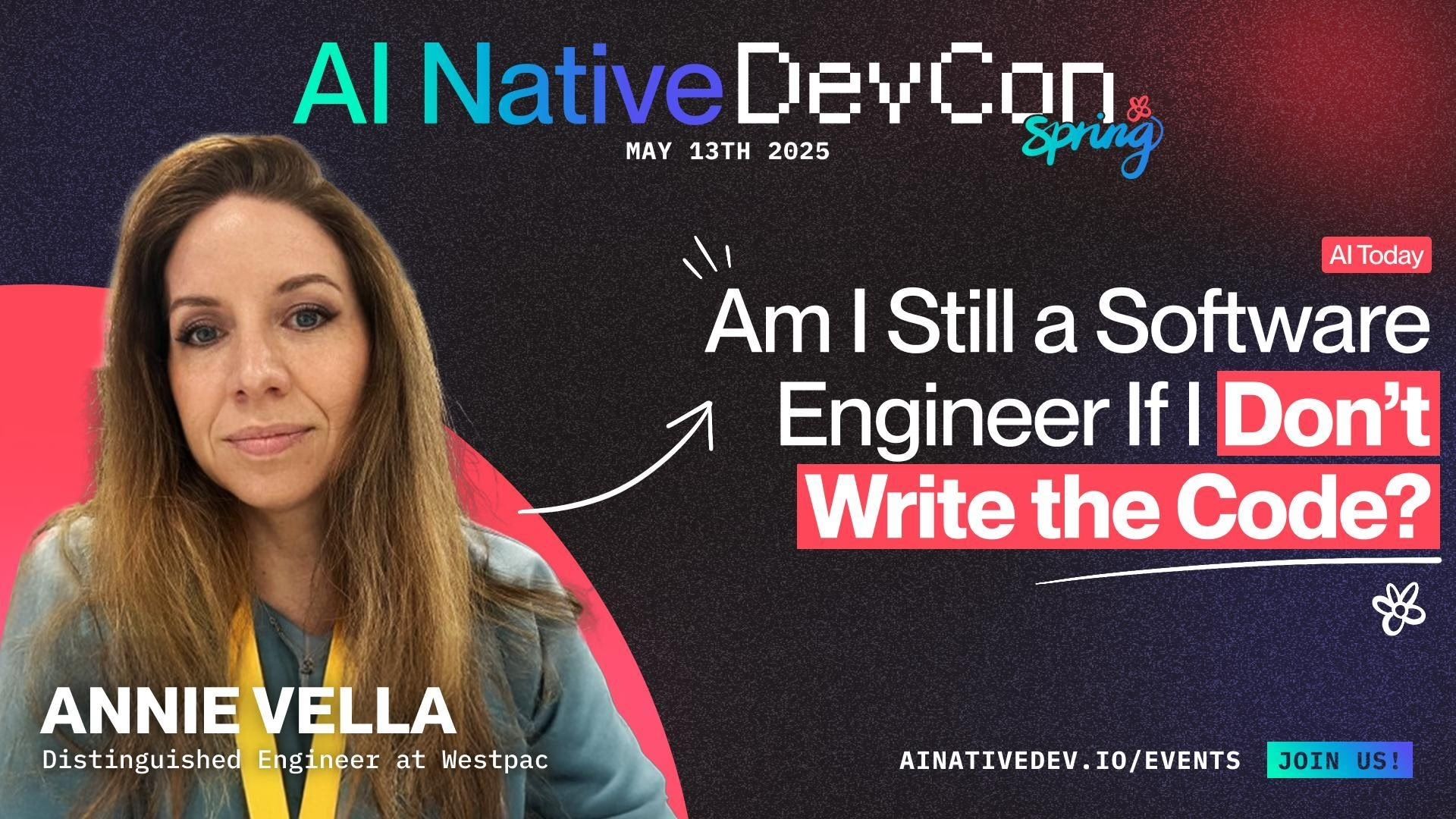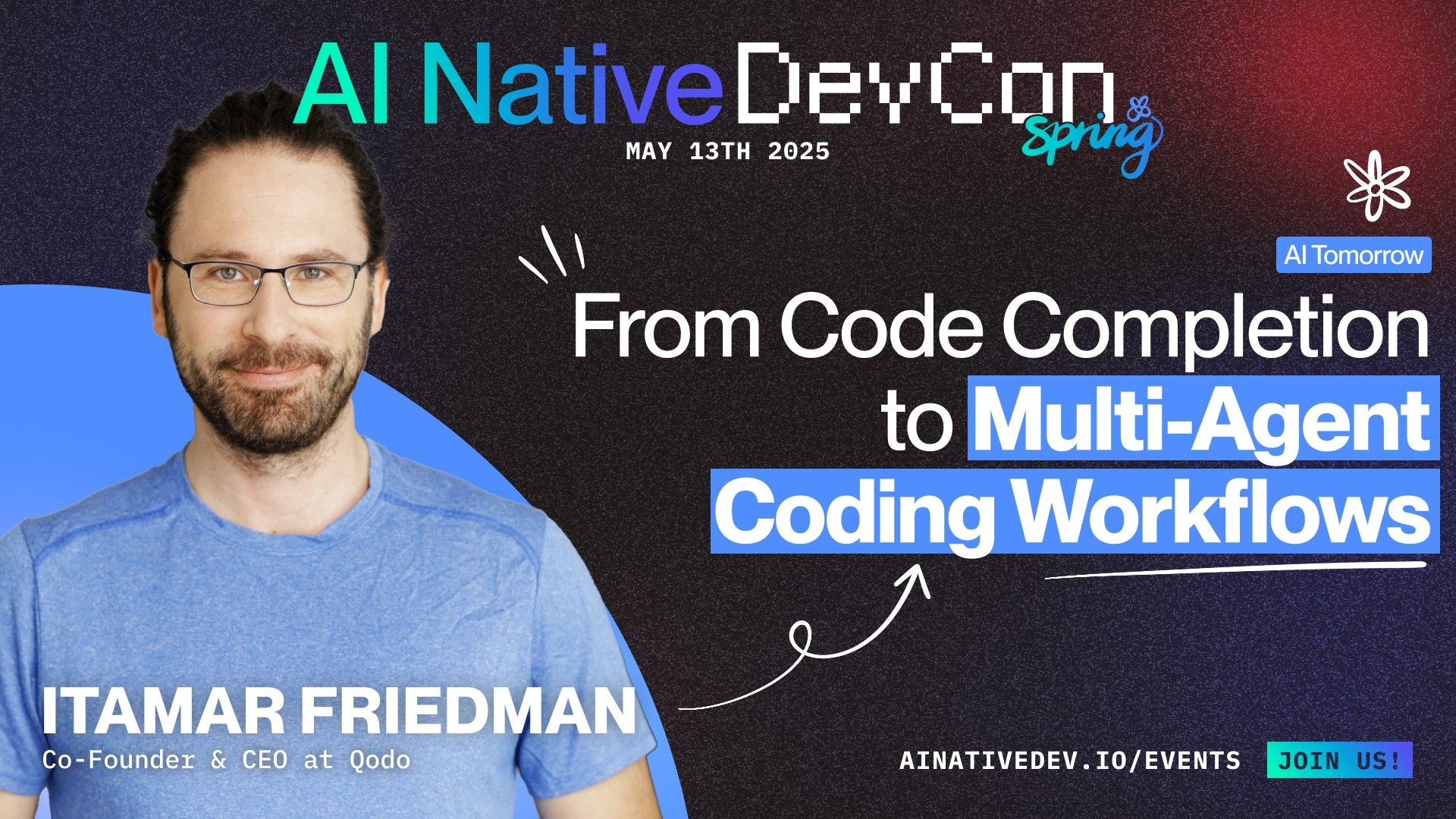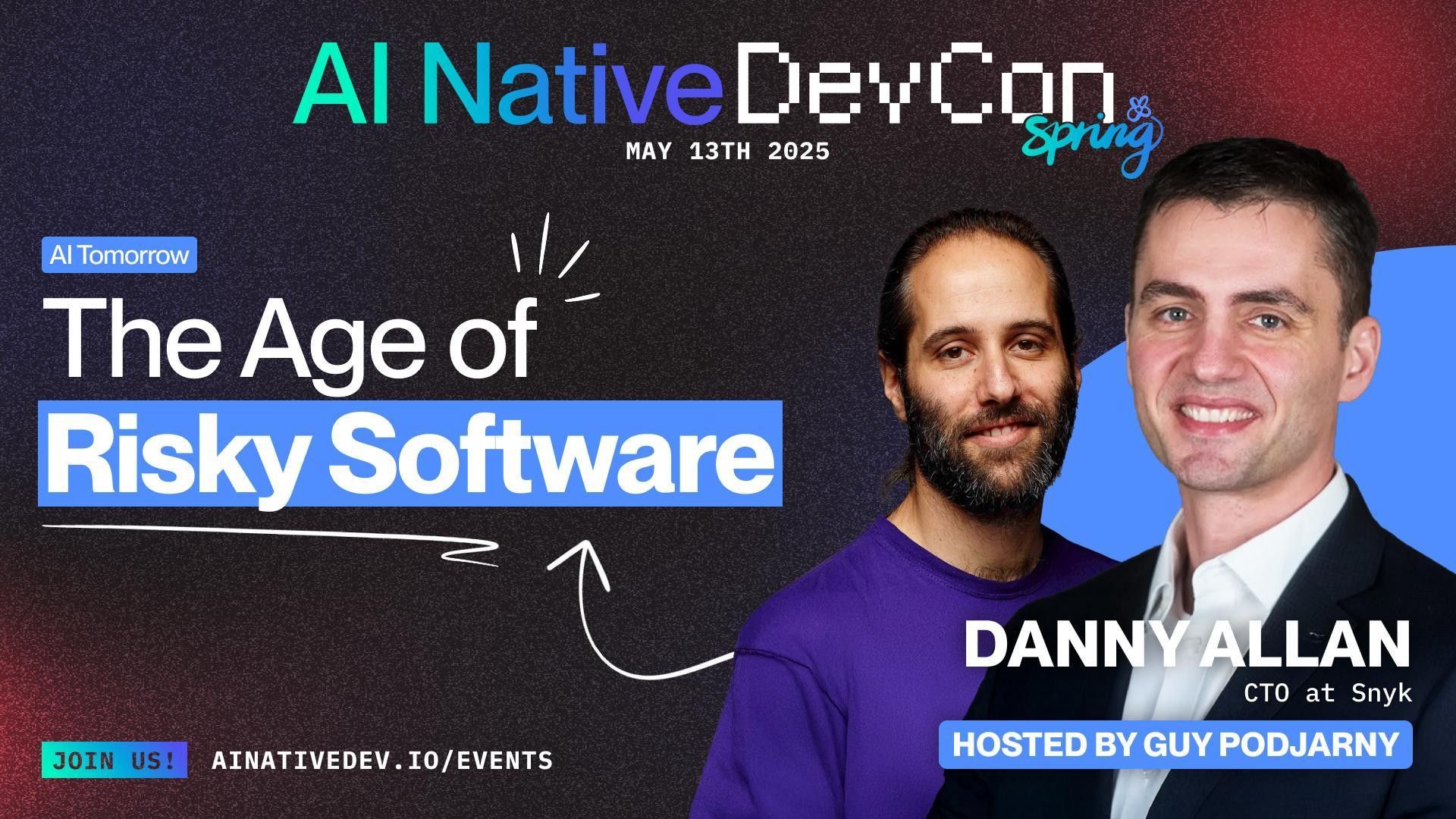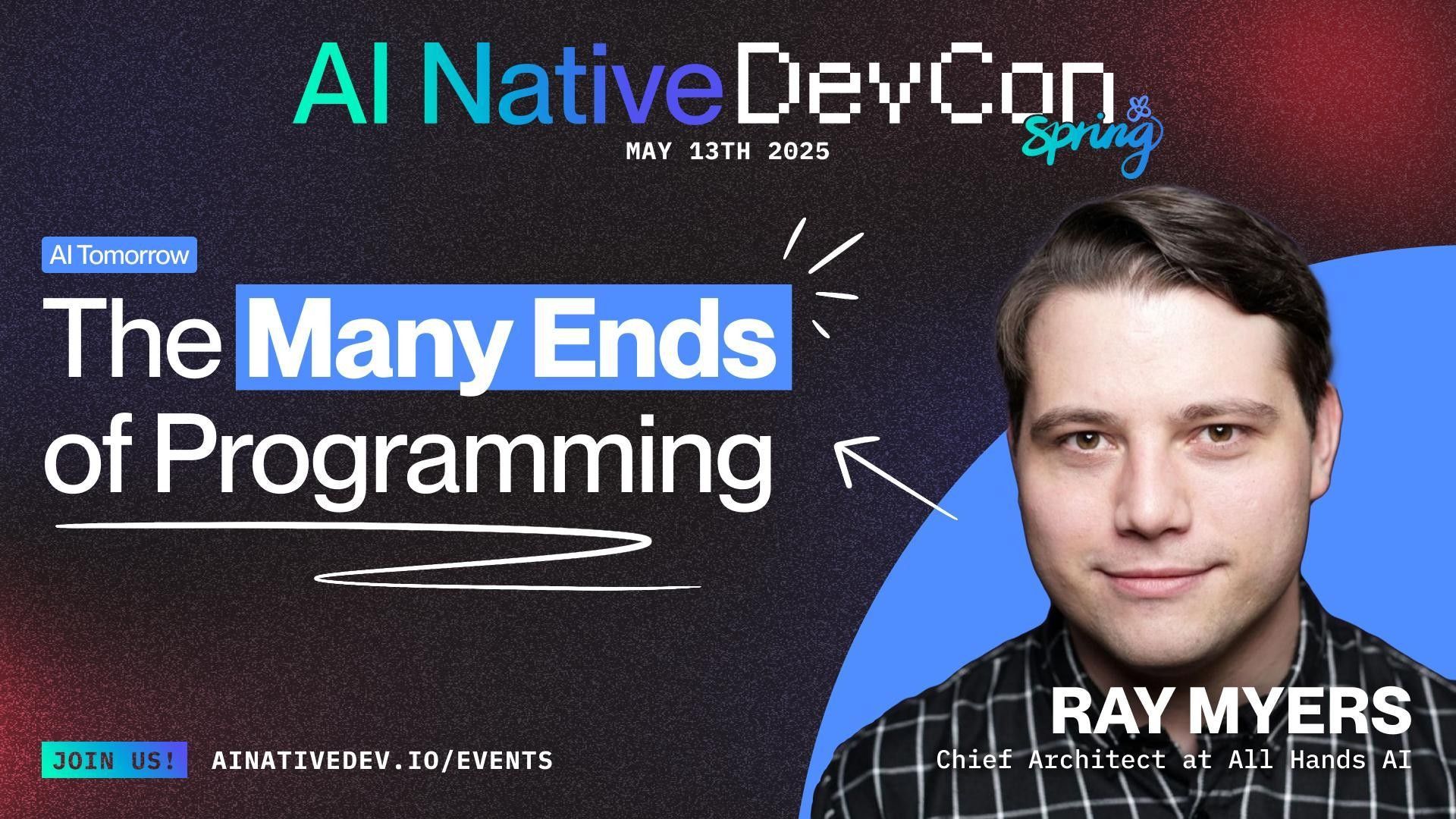
The Many Ends of Programming
Ray Myers
4 min read13 May 2025
Chief Architect, All Hands AI
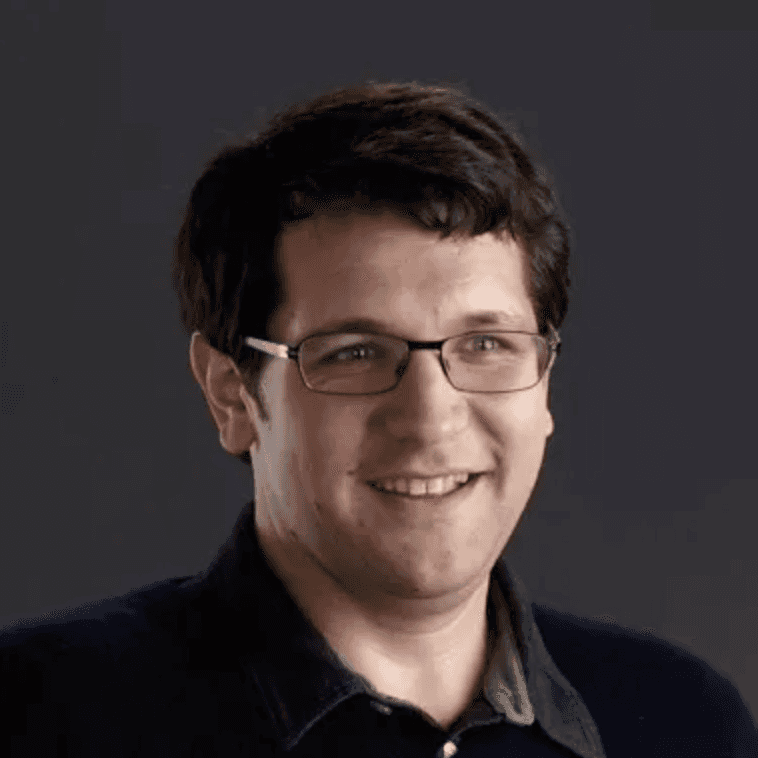
Dion Almaer
13 May 2025
Field CTO, Tessl
In this talk
AI will reshape Software Engineering – but how remains an open question. Will the developers’ role evolve, or vanish entirely? Are we heading toward an Innovator’s Paradise or an Infinite Pile of Garbage?
Visions of the future are so wildly divergent that we struggle to even agree on terms, let alone direction. In this talk, we’ll cut through the noise by exploring six distinct “endgames” for programming in the age of AI. Each offers a different lens on what we build, how we build, and who (or what) is doing the building.
By naming and examining these futures, we gain a clearer view of what’s ahead and a chance to choose our destination.
The Evolving Landscape of Programming
Ray Myers, Chief Architect at All Hands AI, delivered a compelling and multifaceted talk on the potential futures of software development in an era increasingly influenced by AI and automation. In "The Many Ends of Programming," Myers explores how the landscape of programming might evolve, proposing six scenarios that range from incremental to radical changes. His insights are not only thought-provoking but also serve as a call for nuanced and empathetic discourse within the programming community.
Navigating Extreme Completion
Ray Myers opens the discussion with what he calls "Extreme Completion," a scenario already in motion with the integration of AI tools within development environments. Tools like Cursor Editor and Open Hands exemplify how coding assistants are simplifying routine tasks. Myers argues that while these tools enhance productivity, they do not fundamentally alter the job of a developer. He emphasizes, "our job doesn’t fundamentally change—these tools are conveniences rather than game-changers."
The Devocalypse: Empowerment or Extinction?
In a more radical scenario, Myers introduces "The Devocalypse," where software engineers might become obsolete, replaced by users capable of directly implementing their ideas without needing to code. This shift, according to Myers, could be seen as empowering for entrepreneurs but potentially disastrous for developers. "Our elimination is their empowerment," he observes, suggesting a dual-edged sword that could reshape the tech industry.
Leaping to New Abstractions
The "Abstraction Leap" scenario reflects a potential evolutionary step in programming, akin to the historical shift from assembly language to high-level programming languages. Myers discusses the push for domain-specific languages (DSLs) and the concept of maintaining source as prompts. He references the work of Marcus Volter while cautioning that "true abstraction must be robust and predictable," a standard current AI models struggle to meet consistently.
Uncharted Waters and Speculative Futures
Myers also contemplates a future that defies current paradigms in the "Uncharted Waters" scenario, where computation might no longer be code-centric. Although this remains an abstract possibility, Myers stresses the importance of preparing for unexpected shifts, acknowledging the challenges of envisioning such a future concretely.
The Review Economy and Quality Challenges
The "Review Economy" scenario predicts a bottleneck in the validation of machine-generated code. Developers might find themselves primarily reviewing AI suggestions, which Myers warns could lead to a "dismal future" if quality is not prioritized over quantity. He advocates for "improved quality over sheer output" to avoid stagnation and maintain software integrity.
The Infinite Pile of Garbage
Lastly, Myers presents a cautionary tale in the "Infinite Pile of Garbage" scenario, where AI-generated code could exacerbate technical debt and lower software quality. He cites white papers from Uplevel and Gitclear that highlight increased bugs and code duplication with AI assistance, though he notes the self-interest and debate surrounding these studies.
About The Speakers
Ray Myers
Chief Architect, All Hands AI
Legacy code expert, 18 years experience, explores AI-maintainability intersection, hosts Empathy In Tech podcast
Dion Almaer
Field CTO, Tessl
Field CTO at Tessl, previously built developer products at Google, Shopify, Mozilla

Join the discussion.
Stay connected, share your thoughts, and be part of the community.

